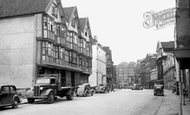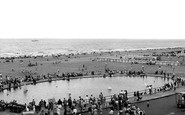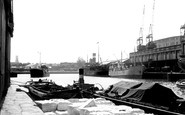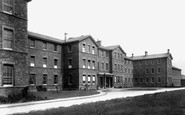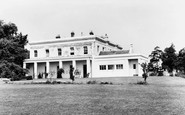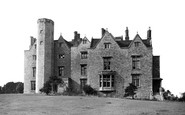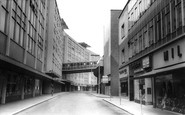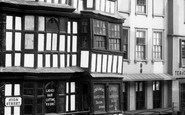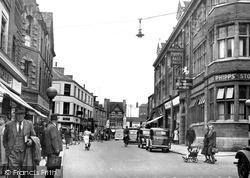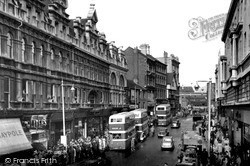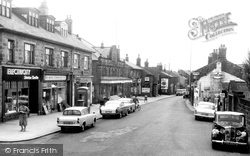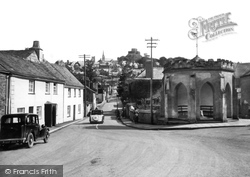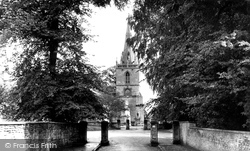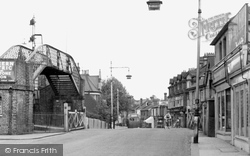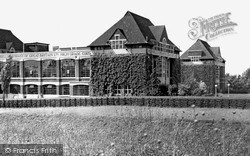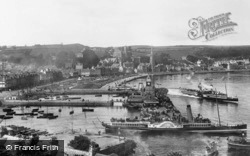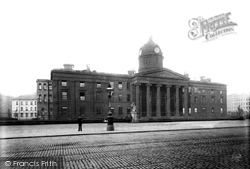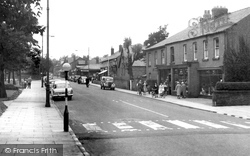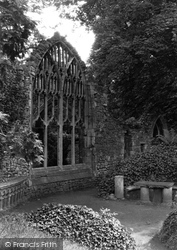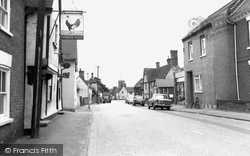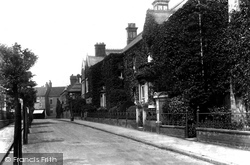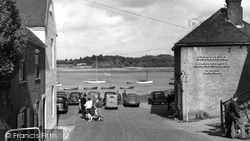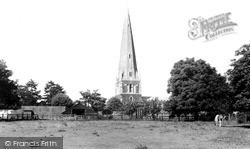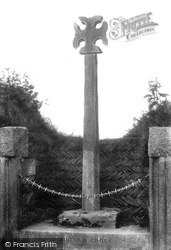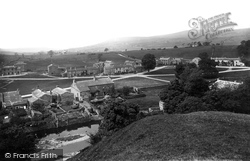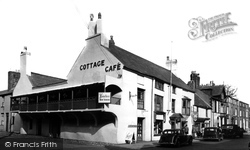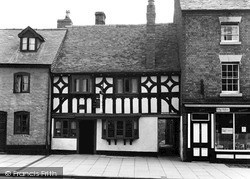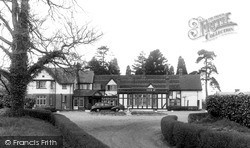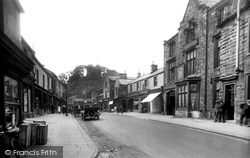Places
26 places found.
Those places high-lighted have photos. All locations may have maps, books and memories.
- Town End, Derbyshire
- Town End, Buckinghamshire
- Town's End, Somerset
- Towns End, Dorset
- Town End, Merseyside
- Town End, Cambridgeshire
- Town's End, Buckinghamshire
- West End Town, Northumberland
- Bolton Town End, Lancashire
- Kearby Town End, Yorkshire
- Town End, Cumbria (near Grange-Over-Sands)
- Town End, Cumbria (near Bowness-On-Windermere)
- Town End, Yorkshire (near Huddersfield)
- Town End, Yorkshire (near Wilberfoss)
- Town End, Cumbria (near Appleby-in-Westmorland)
- Town's End, Dorset (near Melbury Osmond)
- Town's End, Dorset (near Swanage)
- Town End, Cumbria (near Ambleside)
- Town End, Cumbria (near Lakeside)
- Town End, Cumbria (near Kirkby Lonsdale)
- Town End, Cumbria (near Ambleside)
- Town's End, Dorset (near Bere Regis)
- West-end Town, South Glamorgan
- Townend, Derbyshire
- Townend, Strathclyde (near Dumbarton)
- Townend, Staffordshire (near Stone)
Photos
23 photos found. Showing results 3,841 to 23.
Maps
195 maps found.
Books
3 books found. Showing results 4,609 to 3.
Memories
3,719 memories found. Showing results 1,921 to 1,930.
Privateers And Pirates
The Llandoger Trow - It is rumoured that Daniel DeFoe had met Alexander Selkirk ( shipwrekced sailor who had been rescued by a Bristol ship) in the Llandoger, on whose story he based his book 'Robinson Crusoe'. The ...Read more
A memory of Bristol by
Wonderful Times
"Hold his hand and, don't let him fall in", were my dear old mum's famous last words. As an 8 year old when this photo was taken, keeping an eye on an accident prone 6 year old brother was no easy task. Off we went on the old ...Read more
A memory of Gorleston-on-Sea in 1960 by
Bristol City Docks The History
Bristol's great heritage started from humble beginnings. An Anglo-Saxon settlement by the name of Brigstowe steadily grew into a thriving port. After the Norman invasion of 1066, a castle was built in what is now known ...Read more
A memory of Bristol by
George Muller
It is ironic that these massive buildings that dominate the ridge at Ashley Down were known for generations as the Muller Homes. Their founder, German immigrant George Muller, was insistent on the title 'The New Orphan House' as he did ...Read more
A memory of Bristol by
Laleham Abbey
I was at the school from 1945 to 1947. Names which spring to mind, on the spur of the moment, are Shirley Anne Blyth, Maitland Bond, Penelope Bovill, Hilary Cunningham, Anne Elliot, Faith Fabian, Jennifer Jeffries, Brigid ...Read more
A memory of Laleham in 1945 by
When The Searchlights Came
When the searchlights came... During the Second World War, Uttoxeter hardly knew that the war was on, although our young men and women kept leaving, and rationing was severe. One change to us all, on the park side ...Read more
A memory of Stramshall in 1941 by
Pupil
I was a pupil at this school from 1954 to 1961. I was in Miss Staddart's class. She used to take us to pictures on Saturdays, some of the films which I saw were 'Ben NUr', and Norman Wisdom's films. My friends I remember were Clive Wood, ...Read more
A memory of Almondsbury in 1954 by
Fairfax Street , Broadmead, Bristol Bs1
This 1960s photograph shows Bristol's Fairfax Street in the Broadmead area. The large building on the left shows the former Fairfax House Department Store, later pulled down to build Bristol's Galleries Shopping ...Read more
A memory of Bristol in 1962 by
Bristol, High Street And The Blitz 1940
Bristol's High Street scene of many strirring events in Bristol's history the heart of the city was destroyed and lost forever in 1940. As a city with docks and industry at its heart, Bristol was a natural ...Read more
A memory of Bristol in 1940 by
Born At Cothill Farm And Schooled In Duns
I was born at Cothill Farm in 1947, about 4 miles from Duns. I attended Duns Primary School and Berwickshire High School. My father (James) retired in 1965 at age 70, he and my mother located to the west coast ...Read more
A memory of Duns in 1965 by
Captions
5,054 captions found. Showing results 4,609 to 4,632.
Marks & Spencer had replaced F Spence & Son, a furnishers with an impressive window display. Alfred Webb, on the corner of Bellfoundry Lane (left), had been established in 1897 as Webb Bros.
Newport has a rich history, with Roman occupation at Caerleon, a medieval castle, and the Chartist Rising of 1839, which was put down by troops.
No town centre worth its salt was complete without its Co-op store. On the left in this picture is the branch of the Leeds Industrial Co-operative Society.
The electorate consisted of those men who had a hearth in Newport and St Stephens, and they voted as they were ordered to by the Duke of Northumberland; this effectively meant that the Duke decided who
The fine setting of the town church is shown in this picturesque view through the gateway.
Addlestone grew up in the mid 19th century with the arrival of the railway, when a few villas and many more terraces and pairs of artisan houses were built.
The new factory was commissioned in 1912, and was built over the following eight years.
Rothesay is the county town on the eastern side of the Island of Bute, in an ideal location in the sheltered 'sweet Rothesay Bay', to quote the popular song.
One of the founders of the Infirmary had been Dr White, and it was his son Charles who made many changes and advances in the treatment of women.
The centre of Heswall was originally much closer to the shoreline, probably in the area around Village Road and St Peter's Church, but the advent of Telegraph Road - the A540 - has moved the commercial
The Town Hall and the Market Hall stand out at the centre; the large building to the right of the Market Hall is Samuel H Facey & Son's brewery, which opened in 1862.
Edwin James Trendell, who had presented the Queen Victoria statue to the town to commemorate her 1887 Golden Jubilee, lived in Abbey House, and laid out its grounds, Abbey Gardens, in the 1880s.
There was a great fire in 1600 in Gamlingay, and most of the buildings along Church Street were burnt down. The Cock is one of the early replacements; in 1965 the beer was supplied by Greene King.
One is that he was found abandoned in the parish church by some Yorkshire clothiers who were pass- ing through the town on their way home.
New crowd-pulling ideas included carnivals and processions. In the 1960s formation sailing was performed by the light of coloured searchlights. Today, Hamble Week promotes local produce.
Leighton Buzzard's name has nothing directly to do with birds of prey, despite several local organisations adopting the title 'The Buzzards' and using the hawk as an emblem.
The top part of the cross was discovered in the 19th century at Tresmarrow Farm, and was put in the town museum.
During the inter-war years the council tried to alleviate the high rate of unemployment and set up a number of public works schemes.
We are looking down on the village from the site of a Roman camp. The old Roman road drops steeply down onto the green, via a bridge over the short river from Semer Water, two miles away.
Further down the Thames are the Houses of Parliament - or rather, the Palace of Westminster. This replaced the old palace, which burned down in 1834.
The town is best-known for its castle of Edward I, started in 1294 in response to Madog's revolt, but never completed.
Welshpool has had an anxious history, situated on the border with England, and has been destroyed on several occasions.
On the level ground to the south-west of the town stands the almost ploughed-out remains of an ancient double-ditched camp called The Aubreys.
Shops here have been kept by the same families for years, and they still have a reputation for quality and service.
Places (26)
Photos (23)
Memories (3719)
Books (3)
Maps (195)



